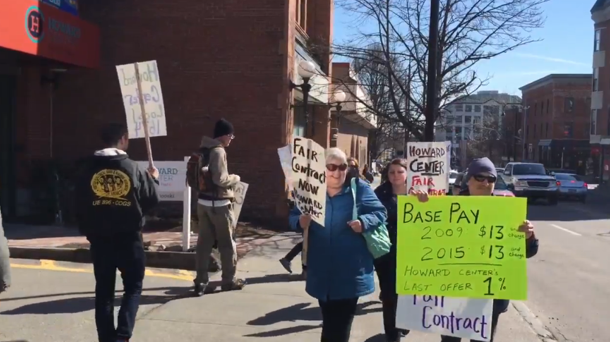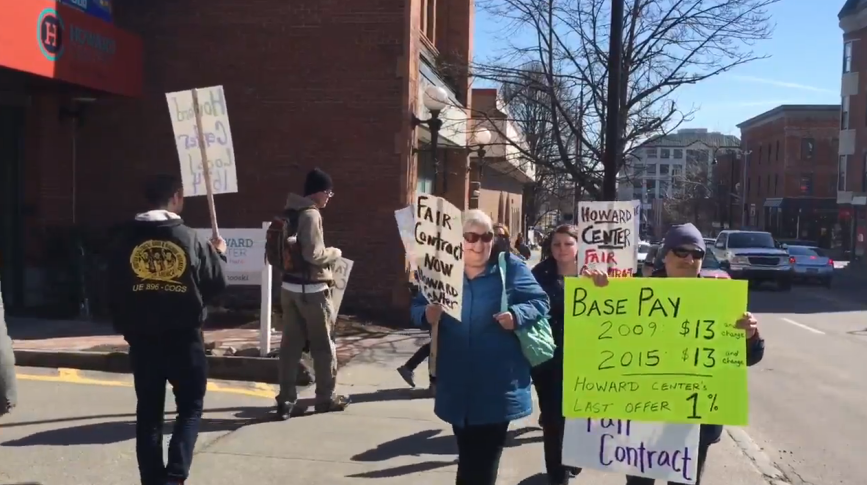
More than 13 months of intensive contract negotiations has yielded a lucrative new contract for AFSCME members working at Vermont's HowardCenter, a nonprofit social services organization. Members of Local 1674 voted overwhelmingly June 30 to ratify the contract, paving the way for long overdue pay increases for the workers.
"It's heartening to know that the wages of our members at the HowardCenter are finally beginning to match the quality of the critical services they provide," said AFSCME Council 93 Exec. Dir. Frank Moroney, also an AFSCME International vice president. "These skilled and dedicated workers work hard every day to provide quality care to some of the most vulnerable members of society. We're pleased we were able to bring them this long-overdue recognition and we look forward to continuing to build the strength and power of Local 1674."
Under the new agreement, current employees who were employed at the HowardCenter on or after Nov. 1, 2013, will receive a 2 percent increase to their base salary. In addition, workers will receive a 2.6 percent retroactive increase for the period Aug 1, 2014, through June 30, 2015. They also received an additional 2 percent increase, effective July 1.
Some staff will receive additional pay increases or bonuses, depending on licenses they hold, the shifts they work, the length of time they've worked at the center, and other factors. In addition, workers who use their automobiles for their jobs will now also receive reimbursement at the non-taxable per mile rate set annually by the IRS.
The road to the contract agreement was long and difficult and included several demonstrations aimed at calling attention to the extremely low wages paid to the workers. The union also organized a public informational forum at Burlington City Hall that drew more than 150 supporters and was attended by Moroney and AFSCME Pres. Lee Saunders.
After months of pressure, the union also received the backing of Burlington City Councilors who passed a nonbinding resolution in May urging the Howard Center to pay workers a living wage. These and other efforts were bolstered by a Council 93 paid radio advertising campaign and other media relations strategies.
